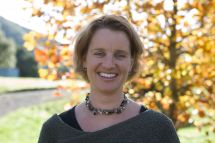Our Changing World for Thursday 29 May 2008
On This Programme
Physicist Ben Ruck works with extremely thin films of experimental materials - around 100 nanometers thick - that he grows in his laboratory. His current work is on rare earth nitrides, which are alloys of rare earth metals and nitrogen gas. These materials have unusual magnetic and electrical properties that are difficult for theoreticians to predict. Ben Ruck and his team are working to answer fundamental questions about these novel materials, that may someday lead to advances in computers and other electronic devices. Dacia Herbulock visited him in the basement of the MacDiarmid Institute for Advanced Materials and Nanotechnology.
Philip Hulme studies plant biosecurity at the National Centre for Advanced Bio-Protection Technologies based at Lincoln University. He speaks to Dacia Herbulock about the importance of a global perspective on biological invasions, and the relevance of science to biosecurity in New Zealand.
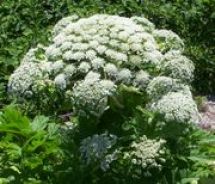
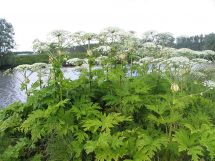
AKA wild rhubarb, cartwheel flower, wild parsnip and cow parsnip, the introduced plant giant hogweed is poisonous to humans and competes with native plants.
Dopamine is a chemical that transmits information between individual brain cells. It is thought to be involved in the brain's reward system, triggering a good feeling when we anticipate a reward and therefore playing a major role in learning and decision making. Veronika Meduna talks to Neuro-scientist Jan Lauwereyns about his research investigating the role of neuro-transmitters and what happens in real-life situations in which we have to decide between instant gratification and long-term benefits.
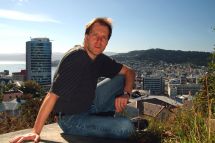
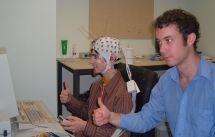
Above left: Jan Lewereyns. (Image by Robert Cross.)
Above right: Doctoral student Matt Weaver prepares a participant for a brain-wave recording session. (Imagecourtesy of Jan Lewereyns.)
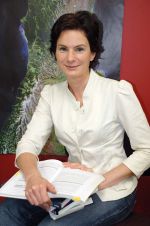 Veronika Meduna talks to this year's winners of the biennial Zontaawards in science and building research.
Veronika Meduna talks to this year's winners of the biennial Zontaawards in science and building research.
Deirdre Hart (pictured left), a geographer at the University of Canterbury who is studying river mouth lagoons and coastal ecosystems, was presented with the Zonta Science Award.
Wendy Saunders (pictured below), who studies for a PhD in natural hazard planning and innovative land use planning, won the Zonta Building Research Award. The Zonta awards were established in 1990 to further the status of women in scientific fields.
(Images courtesy of Zonta NZ)
